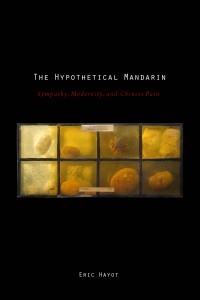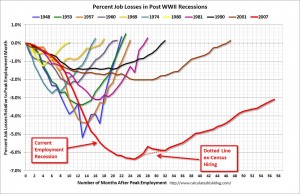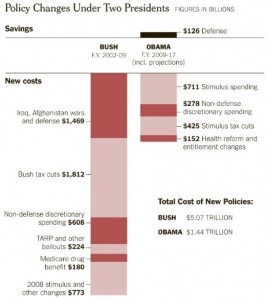The disappointments of fiction
If you have time this Sunday please read Walter Kirn’s review of Samson Graham-Muñoz’s new novel, The String Theory Quartet.
The following quotations are from the novel:
“The weather today was the weather of yesterday and tomorrow it would be the weather again: mummifyingly dry and hot and whipped by cyclones of toxic pink particulates that settled on the brown fields like vile confetti. Buddy Dean was up early, roaming about the house in a pair of patched digital overalls and a pre-diaspora Chicago Cubs cap. ‘Don’t be downhearted,’ came the leader’s voice over the old RCA tube radio. ‘The soil may be dust and the rains a memory, but courage is the crop that never fails.’ Buddy listened, too weak even to nod. Out the window a pair of skinny crows pecked for quarks and bosons in the yard.”
… and from a very different section, stylistically (Kirn compares it to Hemingway):
“He picked up his instrument. He drew the bow. He drew it across the strings. Some sounds came out. The leader was moved. His voice boomed through the envelope. An old voice, like music. But not music. A voice. ‘Keep playing, my boy,’ it commanded. And so he played. While amethyst planets burned coolly in the dusk and children who’d never seen whales or dreamed of unicorns imagined they had. Seen whales. Dreamed unicorns.”
And from an interview with the author:
“When I used to cut hair in my father’s Miami barbershop I learned something true about scissors: they have two blades. One for stretching the strand until it’s taut, the other for lopping it off. Two blades, one purpose. That’s how I write fiction. With my scissors-mind.
Good lord, I wish this guy existed. I spent 5 minutes searching for Graham-Muñoz and The String Theory Quartet on Amazon before realizing that the whole thing is a mirage. Well done, Walter Kirn!
The miracles of human creativity
One of the most amazing things about the digital age’s redistribution of the means of aesthetic production and distribution is that it reveals how much love and ambition remain connected to the work of making. Here you have, for free, a remaking of Star Wars entirely in ASCII. The hours it must have taken to do this are astonishing.
I dream of a world in which copyright, which has become a way for corporations to develop a stranglehold on innovation (and functions, as with Disney, in the manner of primitive accumulation), disappears in the wake of content freely produced for others out of this form of love, and the beauties that attend to it.
For that to happen we must, however, have leisure.
The Dog Ate My Homework
Justifications for the Republicans’ failure this week have been coming thick and fast, but I think I like this one best of all: their computers weren’t working. Their candidate, ideology, policies, and strategy would all have been fine if it hadn’t been for those darn computers messing things up.
(Of course, as some of the linked commenters have pointed out, the results of an IT project based on the management style of Bain Capital may have been foreseeable.)
But Seriously
expect, in the coming years, more attacks on intellectuals and the media (especially PBS). The sore losers are going to take it out on anything they can reach. Stanley Kurtz, quoted by my esteemed colleague R. Meeks below, is an old hand at this kind of stuff, having been point man for the attempt to defund foreign language and area studies a few years ago. Clearly, a little knowledge is a dangerous thing for America.
“You People
suppressed our good vote with your more numerous bad votes!” seems to be the current Republican analysis of the election results. How about it, Romneyites? Care to take up the issue of “Electoral College: Axis of Stability or Insult to Democracy” again?
Oh, so that’s why
Stanley Kurtz explains Obama’s reelection:
Just before the election, Jay Nordlinger reported that the proportion of Princeton University faculty or staff donating to the presidential candidates was 155 to 2. Only a visiting engineering lecturer and a janitor gave to Romney. It’s an almost entertainingly extreme example of academic bias, but when you think about it, also a deadly-serious explanation for Obama’s victory. The college educated professionals at the heart of Obama’s coalition are products of an academic culture that not only leans far-left, but is dedicated to producing precisely the national political outcome that Obama represents. Obama himself was both a product and a member of the elite leftist university faculty.
In contrast to Reagan’s appointees Bill Bennett and Lynne Cheney, the Bush administration avoided public battles with the academy. Republicans nowadays tend to write off academia as silly and irrelevant. Meanwhile, our colleges and universities have been quietly churning out left-leaning voters for some time. Not all graduates go along, of course, but many do.
Higher education is also connected to the demographic roots of Obama’s victory. Prior to World War II, college was still the path less traveled. By the sixties, it had become common. Now years of post-graduate professional education for a large percentage of Americans have pushed back the age of marriage, increasing the numbers of single women so crucial to Obama’s coalition. The phenomenon of extended singlehood is at the root of the new social liberalism as well, not to mention the demographic bust driving our entitlement crisis.
Yes, it was all those liberal university elites at those places thought silly and irrelevant by current conservatives.
The New Asian City: An Interview
I recently spoke with Jini Kim Watson about her fascinating book on fictions of urban transformation in Singapore, South Korea, and Taiwan. You can listen to our conversation for New Books in East Asian Studies here.
My Apology Tour
That title was just trolling. I don’t have the standing to “apologize for America,” as the Republicans like to claim any non-Republican has an unhealthy penchant for doing; but I do often travel outside the country and in those exotic places I often find myself asked to explain what the hell we are thinking and how we got this way.
The plain fact is that we have a lot of politicians going around spouting absolute guff about things they know nothing about, and this adds to, rather than detracting from, their popularity. We have politicians who plan to force women who’ve been raped to carry the potentially resulting child to term. We have politicians whose ambition is to get into the bedrooms of their fellow citizens and intervene in the categories of (to quote an old limerick) “what, and with which, and to whom.” We have a number of politicians whose favorite trick is to go around declaring war on everybody else– and can’t locate on a map the countries they’d like to invade. We have politicians who specialize in insinuating that half the US population is made up of shiftless black and brown people who lie around wearing those loose shoes and collecting multiple welfare checks. We have politicians who say that God will take care of our climate issues, if we just burn enough fossil fuels to get His attention. None of this would be acceptable, let alone electable, in the other countries I travel to, where politicians and citizens are obliged to live a little closer to reality.
I used to think that our wealth insulated us from the facts. Now that our wealth seems to be thinning out, it may be our stock of weapons that does the insulating.
And now an essay in The Economist comes out with a good half-truth. Why is it that we have such electoral acrimony, such screaming and demonizing, given that the two parties’ real differences are so often a matter of nuance, as the Economist puts it, the difference between a 35% and a 39.5% top tax rate?
The grain of truth is that despite all the hollering about Obama as a “Communist” (we saw plenty of that on Youtube and elsewhere in recent days), he is governing somewhere to the right of Richard Nixon and taking advantage of all the Bush-era licenses to kill, to spy and to detain.
Granted, getting elected and governing are two different things, and the stuff you might have to say to get elected these days is not going to help you govern, should you actually want to make things work. Fair enough. The part that escapes the Economist writer is the way life in the US looks if you’re non-white, of unresolved immigration status, uninsured, female, or non-Christian. Under a Republican administration, white men would start acting like the majority they once thought they were, and would definitely take steps to disenfranchise, underpay, de-unionize, delegitimate and fiscally punish those pesky Others. In that regard, we’re not talking about 35% vs. 39.5%. We’re talking about voting vs. being silenced. We’re talking about living lives of servitude vs. living with some autonomy. These things matter, if you’re one of the people for whom they matter, or are acquainted with any.
The other thing I have to explain is the way unlimited campaign money acts to turn the usual hogwash of electioneering into a frothy brew of murky character and overripe scent, slung in the faces of every media audience member in the country for six to nine months before the day that levers are finally, gratefully, pulled. If the Supreme Court was led by a belief that free speech is good, and more speech means more of that good, the realities following from their disastrous Citizens United decision can be summed up in one concept: Gresham’s Law. “Bad money drives out good,” as the seventeenth-century economist put it. Whenever counterfeit is circulating together with solid coin and accepted at face value, people will hoard the real coin for themselves and transact their business with the fake stuff as extensively as possible. The availability of limitless funds for air time has led to the production of lies and stupidity on a scale so far unprecedented. I firmly believe that if the candidates had only so much money to spend on their campaigns, and only so much time to put their case before the public, they would concentrate on making arguments of higher quality. We wouldn’t have this tactic of spurting out every nonsense accusation imaginable in the hopes that something will get traction or remain unanswered. Limiting the amount of speech every candidate enjoys, so long as it is done equitably, might result in US elections coming to resemble those elsewhere in the world in at least this regard: they might be about the policies, not about personalities, a matter of judgment, not of identification.
At least, this is what I say to reassure people that we are not some mutant offshoot of the human species, but obey general social laws even in our craziness. And that’s my explanation tour.
Another day, another dawn
Big day for the party of compassion and bunnies yesterday! First time that a gay marriage issue has won at the ballot box (x 4, at last count); Prop 30 passes in California, assuring that those universities will stay open; and of course the Dems end up with the Presidency and a 55-45 lead in the Senate. Also a major victory for science and poll quantifiers over the gut feeling idiot pundits like George Will and Dick Morris.
It will be very interesting to see what happens in the next four years as Obama begins to govern without thoughts of re-election, and as the economy (which was going to get better anyway because of things he’d done, but for which now Dems will get the credit) improves. Clinton-Warren in 2016!
Oh, and for schadenfreude: depressed Republican reactions.
I’m so fucking tired
I am so fucking tired of people (mostly men) talking about banning abortion “except in cases of rape, incest, and the life of the mother” as if that were the compassionate stance. As if forcing women to carry through with pregnancies that they don’t want or can’t afford or are not ready for, for whatever reason, were a perfectly reasonable and ethical position to hold. As if the only way a woman could “deserve” to be a more worthy life than a clump of cells growing inside her were if she’s already been violated. As if there were some index of suffering against which such violations can be measured: If she wasn’t beaten up but good, then it wasn’t really rape. If she knew her rapist, then it doesn’t really count. If she wasn’t a virgin, then what’s the harm? And if she can’t prove that the pregnancy was a result of violence or could end in death, then violence will most certainly be visited on her, because god forbid she should enjoy having sex and not pay a price for it.
I’m pissed off that this veneer of reasonableness in the rhetoric of violence against women is the controlling discourse on abortion, that politicians can stand there and proudly spout their beliefs about the sanctity of life with no repercussions, and that even pro-choice groups treat the “rape, incest, and death” exception as an acceptable ideological difference. I find it bizarre that Nicholas Kristof “respect[s] politicians like Paul Ryan who are consistently anti-abortion, even in cases of rape or incest” because such consistency, according to him, bespeaks a “heartfelt” position that could cost them votes, and therefore is “courageous” (no I’m not making that up!). If Ryan or Romney has a “heartfelt” belief that women who get pregnant but do not want a child must nonetheless be forced to continue the pregnancy and deliver, because anything else is murder, I guess they are free to hold that belief. But when they plan for the state to be in the business of forced pregnancy and delivery for the vast majority of women faced with an unintended pregnancy, then they need to be called out loud and often for the dangerous extremists that they are. Courageous? How about pathologically misogynist?
Preface to the Chinese Translation of The Hypothetical Mandarin
This summer I wrote a preface to the Chinese translation of The Hypothetical Mandarin. I figure it will never see the light in English unless I put it online, so I’m putting it here. One thing I noticed is that beginning with the second paragraph my sentences begin to reflect an awareness that my translator is going to have to get them into Chinese. I also am more candid than I usually am about what I was trying to do in the book.
 The translation of one’s work is an opportunity to think about the activity of one’s own writing practice, to face up to the particularities of one’s style and to acknowledge, or feel apologetic for, the difficulty of one’s prose. Somehow the task of translating work into another language—in which one confronts the fact that one’s work has created difficult labor for someone else—clarifies the value of the choices one makes.
The translation of one’s work is an opportunity to think about the activity of one’s own writing practice, to face up to the particularities of one’s style and to acknowledge, or feel apologetic for, the difficulty of one’s prose. Somehow the task of translating work into another language—in which one confronts the fact that one’s work has created difficult labor for someone else—clarifies the value of the choices one makes.
At first therefore I am tempted to apologize, both to the reader, and to the translator, Yuan Jian, for the unusual and perhaps difficult style of this book. But, perhaps because I am an unusual and difficult person, I have decided that apologizing would be a mistake. After all, the book was intended to be unusual in English as well. I do not want to write like anyone else. Indeed, part of my goal as a writer is to write in a prose style that has an active force in the work, that makes readers aware not only of a personality behind the writing and argument, but makes them wonder if in fact the argument might also be happening at the level of style itself.
Literary scholars take the idea that the argument of a work might happen in its style as a perfectly normal aspect of their work. I cannot imagine anyone disagreeing that the prose style of Jorge Luis Borges or Lu Xun or whoever has something to do with the content of the fiction or the essays they write. The same is true for literary criticism: no one will argue that Derrida’s prose style has nothing to do with his ideas.
Why then do most critics write as if their style had nothing to do with their ideas? Perhaps they are not ambitious enough. Perhaps they do not think of themselves as artists. I am not sure I am an artist, but I know that it is important to me to try to act like one. This means taking myself seriously—not because I am sure that my work is, finally, serious, but because I am sure that the ethical practice of writing begins with believing that writing can matter, that writing is itself a form of thought.
That is why I am especially grateful to Yuan Jian for all his work. As far as I can tell (my reading ability in Chinese is not very good, but I had a friend read me some of the work aloud, too) he has done a remarkable job capturing the feel of my writing in Chinese. If it sounds foreign to you, dear reader, do not worry—it is supposed to sound foreign, sometimes, to native speakers of English. Things that never sound foreign run the risk of being too familiar. They will therefore fail to break the habits, the common sense, of the reader’s eye and ear. But scholarship, like the work of art, should have as its most basic goals to break the habits and defeat the common sense of its audience.
I wrote the book partly to undermine the habit that Europeans and Americans have of thinking that the origin of their most important philosophical concepts lies entirely inside the national and cultural boundaries of the West. I show here that in the case of the development of sympathy, such an idea is simply untrue. I also show how the idea of China helped Europe “think” through and understand a variety of important ideas about modern life, including concepts of world history, religious syncretism, the relation between state and personal cruelty, between science and primitivism, and between the body and the self. In each of these cases the history of a European or American concept can be shown to rely on a certain version of China that did important cultural and philosophical work. This book is a history of that labor.
A certain version of China, yes. But not a version in relation to some true or actual China to which we should return. There is no real China. There are only ideas of China. Chinese people also have those ideas, which we can easily see if we compare some of the common ways in which we describe the language Americans call “mandarin Chinese”: 普通话,汉语,国语,中文. The first of these relates universality to the nation ; the second describes an ethnic principle; the third a Taiwanese resistance, via ambiguity (which 国?), to the mainland; the fourth a tribute to the classical conception of Chinese centrality. None of these names the actual or real Chinese language; each of them expresses an idea of that language. Which one we choose depends on what we want to do. This use reflects competing notions of Chineseness, both in greater China and abroad. We need more work that would help us understand how the ideas of China work.
Marvels and Travels: An Interview
Anthony Bale and I sat down at the National Humanities Center this week to talk about his wonderful new translation of Sir John Mandeville’s The Book of Marvels and Travels for New Books in History. He’s an exceptionally thoughtful translator, we talked about foreskin, and you can listen to our conversation here.
On Repeating the Experiment

The quippy jpeg above has been circulating on Facebook and seems apropos. Our collective quadrennial alienation from one another can, I think, be safely judged to have reached new heights this year; certainly, I have never seen 4 year-olds driven to tears by overexposure to the political process before.
Some obvious contributing causes: the Citizens United decision, which has thrown open the floodgates to unlimited untraceable political donations and Super-PACs; the ensuing carpet-bombing of television, radio, and home telephones in swing and near-swing (swung?) states, including bonus collateral damage in cross-border markets; Fox News and the triumph of hyperpartisan right-wing media; increasing polarization of Congress; and the continuing agonies of the worst economic contraction in 70 years, and median income that has been stagnant for a decade, along with the resulting widespread shame, anger, and despair.

For me personally, however, the single most alienating aspect of the election has been living with the knowledge that a persistent, and very determined, 48% to 50% of my fellow citizens want to engage in a repeat trial of the 8-year experiment in Republican economic and foreign policy orthodoxy that we completed less than four years ago.
After all, I understand that a minority of the population is on board with the scientific approach to economic policy taught in our Econ 101 classrooms. And the liberal approach to foreign policy has been in eclipse my entire lifetime. Moreover, public policy debates typically suffer from the severe handicap that the outcome of the counterhistorical scenario – the parallel universe where the alternative policy was put in place – can never be known.

But not in this case! In this election, we have as close to a controlled trial as any single nation is likely to achieve in this world. 12 years ago we elected (well, sort of) a President whose policy prescriptions were identical in every way to the policies Romney proposes to implement in his administration – from taxes, healthcare, energy policy, and business deregulation to go-it-alone military adventurism abroad. Those policies were implemented, with drastic and obvious negative effects on almost every aspect of life in the United States. As a result of those policies, one can fairly say, we elected our current President four years ago. And now, having seen the alternative approach in action for four years, half of our citizens nonetheless wish to repeat the prior experiment.
No matter what the election results on Tuesday – and as far as that goes, in Nate I trust – I do not think I will ever get over this feeling of disconnect from our fellow citizens who feel either that the Bush policies were superior (in what way?), or that their reincarnation under Romney would lead to different results. In its own way, voting for Romney represents a rejection of the scientific thought process – a discipline I have devoted my life to – as complete and total as the rants of the most extreme religious radicals.
Perhaps I should be less shocked. But let us hope that this time the rational way prevails.
Song of the Day
I swear I just can’t stop listening to these guys.
Self-titled URLs for academics: obnoxious or ok?
I demand that the Printculture community weigh in on the matter. I have become dissatisfied with the structure/updatability of the Penn State pages, and am thinking about creating a set of professional pages using WordPress, which would allow me easily to update announcements about talks, books, and so on, while still also creating a structure for my syllabi, writing tips, and so on.
The free option is something like ehayot.wordpress.com, but unfortunately that keeps you from changing the design too much. The cheap option is to buy (for $12) erichayot.org, and host the site here on the Printculture servers (which any of the regulars could do if they wanted with their own names, btw).
But I’ve always been a little wary of the www.myname.org thing; it feels a bit self-aggrandizing. If it’s the only way to have an easily updatable and good-looking website, I may just do it anyway.
Thoughts?
Poll watching
I know most folks are probably feeling anxious about Tuesday’s election. One way to make yourself feel better is to visit the Princeton Election Consortium, which seems to have the most optimistic statistical take (maybe it’s just accurate) on the day’s events. I also look at Electoral Vote and of course Nate Silver’s 538 blog, though my feeling is that Sam Wang’s critiques of Nate’s methodology seem right (also, the commenters at PEC are much better than the ones at 538).
Then again we’ll know a lot more about whose methods worked best, at least this time around, come Tuesday evening.
The Late Bookstore
A couple of people have let me know that my piece on the demise of the former UCI Bookstore has readers in the outside world, something I never would have guessed from the comments section here. Their reaction has been, “This is terrible! I never knew about this! How do we get our UCI Bookstore back? Do we protest, boycott, Occupy? You tell us to ‘despair.’ That can’t be right.”
The short answer is that it’s simply too late. There was a period of so-called “public comment” about a year ago which had a small number of takers. I think that the people who commented were, like me, ignored and put off, but that would have been the right time to raise a hue and cry.
At this point, the store has sold off practically all of its extant book inventory — tens of thousands of books. (I think there may still be a few hundred book SKUs (items) in the system that aren’t textbooks.) Some titles were sold to customers at reduced prices, some more recent titles were returned to the publisher at their original cost, and everything else went to a jobber who paid pennies on the dollar. The store has doubtless taken a big loss on those books, but consigning them has meant the store can free up shelf space for more profitable inventory, like plush anteaters.
Suppose, for the sake of argument, that a Save The Bookstore movement coalesced, and had at the top of its list of demands: “Bring back our books!” From a business perspective, this cannot be done. You cannot liquidate inventory at pennies on the dollar and then bring back the exact same inventory in at the regular wholesale price of 25-40% off list. If I were the Associate Vice Chancellor of Student Affairs, I would fire the Bookstore director who did such a thing. The only way out would be if a director could make a compelling case that the store could sell, say, at least three copies of each book every year. That is far in excess of the sales rate of the average trade book at the former Bookstore, which was .75 to 1 copy per year.
If the director were to commit to selling three copies of every title every year, the customers of the store would have to make a commitment to buy them. I could see a sort of Kickstarter-style campaign, where people would agree to reserve $25, $50, or $75 book gift certificates, good for one year and not redeemable for cash, in their names. If the inventory were funded up to or over a certain level, say, $75,000, the donors would be charged, the certificates issued, and the inventory purchased. Without such a setup… we know what that looks like already, where well-intentioned people loved the Bookstore so much, they bought all their books online. When I think about the Bookstore in this respect, I think of Abie Glassman, the Jewish peddler from John D. Fitzgerald’s Great Brain children’s books. Glassman came to stay and sell notions in Fitzgerald’s fictional Mormon community. He cared about his customers, and he was beloved. Nonetheless, he starved to death because nearly everyone went to the official Mormon ZCMI store; it was simply more expedient for them to do so.
The idea of a crowdsourcing campaign gets to the bottom of “how to get our store back.” The argument for the destruction of the Bookstore was economic; any counter-argument, at least in the current reality, will have to be economic as well. A university bookstore is a business. It brings money into the University. When that money dwindles, it means that there is less to support University programs, and, especially when State money keeps getting scarcer, administrators have to fill the gap, period. Anyone who wants to bring the UCI Bookstore back will have to come up with a realistic business plan of his or her own, one that fills that gap over the long term, or comes very close.
I said, “at least in the current reality.” In the world of principles, which is where many readers reside, things are — or, should be — different. Access to books, and the promotion of higher forms of literacy, should be parts of a university’s mission. Libraries, by their nature, go only so far with this mission; every book acquired must be argued for, and every book acquired must help develop a collection. A real university bookstore is not under these constraints; people are exposed to the streams of fiction and non-fiction in real time, and they can get what they want without contending with someone else’s loan period. What is that worth? Could a university bookstore be operated, not as a profit center, but as the part of the educational enterprise that encouraged reading? Those who play the zero-sum game would ask, “Which would you rather have: a real university bookstore or more students getting financial aid?” I invite you to think your way out of that question.
***
This is, perhaps, too harsh a place to end, so I will return to an earlier time. When I was a graduate student and entry-level worker at the Bookstore, there was a frequent customer from the English department named Professor Homer Obed Brown. He was known at the store both for his benevolence and amiability, and for his besottedness with books. When, in my capacity as a graduate student, I would go into his office, every horizontal surface would be piled four or five feet high with books, the library’s mingled with his own. When, in my capacity as a Bookstore worker, I would walk with him through the store, we would talk, and he would absentmindedly slip books into his basket, until at last he would present himself at the register with some twenty-odd books at a time. I would like to think that, if he were alive today and had known of the Bookstore’s problems, he would have solved them by buying up the literary criticism section outright.


